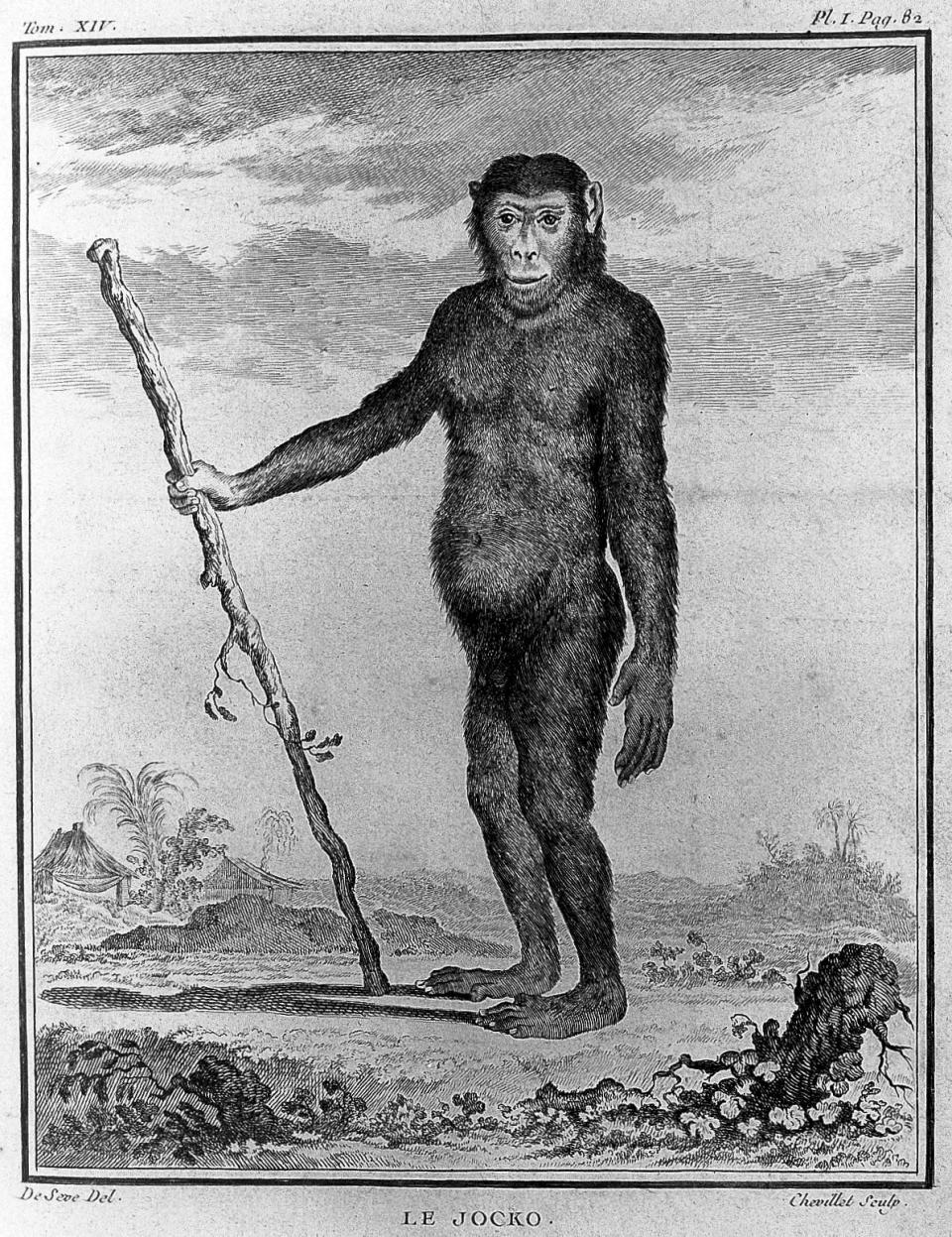Why more than a few monkeys are named Jocko
In the first part of the 20th century, it wasn't unusual for newspapers to report on the exploits of a monkey named "Jocko." These reports were not all about the same monkey. "Jocko" was used as a generic name for any monkey, much like a dog can be called "Spot."

"Jocko" came from several similar-sounding West African words, including "enjocko" and "engeco," meaning "chimpanzee." Those were simplified to "jocko" by 18th-century French naturalist Georges-Louis Leclerc, the Count Buffon, and eventually came to mean any smaller variety of ape, not just chimpanzees.
Read more: The incredible story of Warwick's wild monkeys: Escaped simians wreak havoc, touch hearts
And so "Jocko" – by various spellings – became, in English, the generic proper name for any monkey.
This article originally appeared on The Providence Journal: Jocko the Monkey: Why so many monkeys have shared the name

